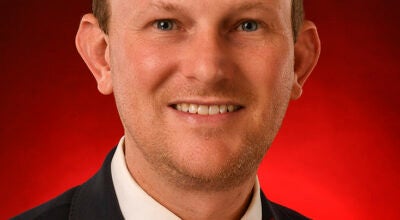This matters more than you think
Published 6:37 pm Wednesday, March 12, 2014
Who do you think knows more about containing costs, businesses like Walmart and Costco, or Federal bureaucrats? Since bureaucrats do not have to meet payroll or sell a good or service to the public, I’ll put my money on businesses.
Yet Washington bureaucrats can now override Americans’ decisions related to energy conservation. The Department of Energy (DoE) has regulated energy conservation standards since 1975, but has issued a spate of recent regulations, often in the name of combating climate change.
Climate change, however, is a false flag. Recent DoE regulations will reduce energy use, but most of the benefits result from lower energy costs. Reduced carbon emissions account for less than 10% of the benefits of most of these regulations; the remainder result from lower energy costs and are an example of what regulatory economists refer to as “private benefits.” Normally only the wonkiest of policy wonks find cost-benefit analysis remotely interesting, but private benefits reflect a changing role of government which should concern us all.
Private benefits accrue to the consumers of goods and services, in contrast to the benefits of say environmental protection, which spill over to others. If energy conservation could produce benefits related to climate change in excess of cost, this would be a traditional economics rationale for these DoE regulations. Economics normally does not admit any potential private benefits. A choice not to buy a more expensive appliance or car promising energy savings reveals that the buyer has judged the benefits to be less than the cost. Forcing purchases in the traditional view harms the economy.
Private benefits arise because regulators think that they will make people better off by forcing them to buy certain things. My parents always insisted I did my homework when I was growing up, even when I might choose to do otherwise. The DoE now acts as parents for the nation, making Americans invest in energy efficiency even when we complain and disagree. While arguments for government paternalism are not new, private benefits reflect what is known as the “new paternalism,” which draws on research from behavioral economics documenting some systematic decision-making mistakes. Repeated, hard to correct mistakes open a small window for paternalistic government policies.
Energy efficiency experts have long believed that Americans ignore energy efficiency, which comes as news to the millions who have bought higher mileage cars in response to $3 per gallon gas. The DoE has used behavioral economics as an opening to restrict products available on the market. Failure to value energy efficiency as prescribed by DoE regulators is now seen as irrationality to be corrected via regulation.
The DoE believes that businesses are every bit as incapable of valuing energy savings as consumers. You or I only occasionally buy air conditioners or washing machines, and we might doubt that expensive models will pay for themselves through lower electric bills. But food processing companies, groceries and hotel chains operate many walk-in refrigerators and freezers and commercial washing machines. They have a great incentive – profit – to scrutinize the available evidence and determine if energy efficient appliances pay for themselves. As an university economist, I really can’t say if the energy savings compensate for the higher costs. But I think businesses will make these decisions better than bureaucrats.
Government regulations forcing purchase of energy efficient appliances can create costs for the economy. When bureaucrats inevitably make mistakes, regulations impose these mistakes across the economy. And a government willing to compel purchase of every appliance promising energy savings creates a dangerous new “marketing” option for manufacturers: instead of convincing consumers of the value of your product, just convince the bureaucrats at DoE.
The Obama Administration and many bureaucrats seem to see private benefits literally everywhere across the economy. This is not merely a change in cost-benefit arithmetic. It is a view of society where government dominates and citizens are too stupid to do anything other than to do as they are told, and portends a very un-American future.
Daniel Sutter is the Charles G. Koch Professor of Economics with the Manuel H. Johnson Center for Political Economy at Troy University and host of Econversations on TrojanVision. Respond to him at dsutter@troy.edu and like the Johnson Center on Facebook.


